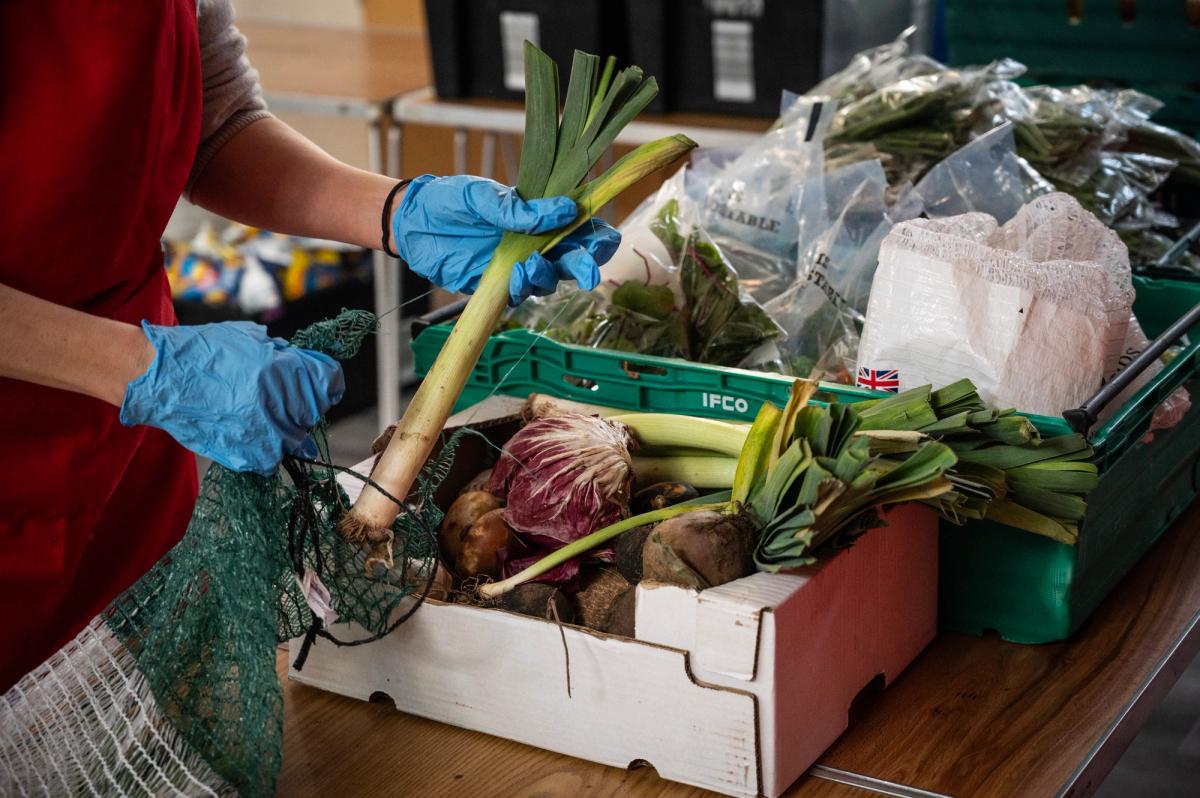
Call on your MP to end the need for charitable food aid
Find your MP with the link below, use our example letter, and demand urgent actions to reduce growing UK poverty.
Example letter
July 2025
Dear [MP Name] MP,
No one should have to turn to charity to be able to eat. Yet over more than a decade, increasing numbers of people have been pushed to the doors of independent food banks and other food aid providers because they haven’t got enough money to afford food. The Social Metrics Commission has found that 16 million people, 24% of the UK population, are living in poverty.
As the UK poverty crisis has escalated, the charitable food aid sector has been pushed past breaking point. Recent data from the Independent Food Aid Network (IFAN) has consistently found that food bank teams are being overstretched and overwhelmed by rising demand.
Food banks and other food aid services are being asked to do the impossible as they try their utmost to support unconscionable numbers of people unable to afford food. These include both people in work whose wages are not enough to cover the cost of living as well as people who are already receiving all their social security entitlements but are still not able to make ends meet.
The provision of charitable food aid in the UK has proved to be an ineffective and unsustainable response to deepening destitution and poverty. Food banks and other food aid groups can only ever provide a temporary sticking plaster to the problem of hunger. What’s more, according to data from the Department for Work and Pensions (DWP), most households reporting severe food insecurity do not access a food bank.[1]
IFAN advocates for a cash first (income-focused) approach to food insecurity and campaigns to see a country without the need for charitable food aid. Not only do cash first interventions provide more dignity and choice to people facing financial hardship but they are effective at reducing food insecurity. DWP data tells us that the temporary £20 uplift to Universal Credit reduced moderate to severe food insecurity in households on Universal Credit by 16%.
The current government can reverse the tide of poverty that has swept the country over the past fourteen years. Its impact has been felt across generations as people’s physical and mental health have been thwarted. I am writing to urge you to take much needed actions as swiftly as possible.
IFAN is calling for immediate, cash first actions to reduce severe food insecurity. These actions would also bring the Labour government's manifesto commitment to end mass dependence on emergency food parcels to fruition:
- adoption of an Essentials Guarantee as a first step towards ensuring a Living Income for all
- removal of the two-child limit as well as the benefit cap
- abolition of the sanctions’ regime
- removal of the five-week wait for Universal Credit and any benefit deductions
- removal of No Recourse to Public Funds status
- real Living Wages and job security for all
- long-term investment in local advice services
For millions of people across the UK not a minute longer can be wasted. I urge you to do all you can to ensure the Government prioritises actions to reduce food insecurity and poverty and its devastating impact on people’s health as well as society as a whole.
I look forward to hearing from you.
Yours sincerely,
[Name/Email/Any other contact details]
[1] 84% households reporting severe food insecurity were found not to be accessing a food bank. Department for Work and Pensions, Family Resources Survey, 2022-2023, https://www.gov.uk/government/statistics/family-resources-survey-financial-year-2022-to-2023/family-resources-survey-financial-year-2022-to-2023
Where next?
Follow our work
One timely email each quarter and we'll never share your details
Find out more about our privacy policy